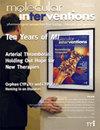Another Orientalism? the Case of Eva De Vitray-Meyerovitch and Rumi
引用次数: 0
Abstract
This article turns to the trajectory of an often ignored figure in the history of French Islamology, Eva de Vitray-Meyerovitch. Through the trajectory and circuits of de Vitray's life and thought, it explores the ambiguity of a forgotten variety of twentieth-century French Islamology, one which attempted to make itself into a mystical study of mysticism and follow the internal logic of its object of study. This article considers the aspects of de Vitray's life and thought that cannot be purely reduced to the circuits of imperialism, or predestined to be a spiritualist search for the “mystical East” as the inferior other of the “rational West.” It looks at the possibility of partial disidentifications from the Orientalist commitment to the European imperialist project, “moments of departure” from classic Orientalism. These can be found in the moments of identification with the mystics who are studied by Islamologists like de Vitray. The East, here in the form of Islamic mysticism, no longer functions as “a career” but rather enables possessive and colonial epistemological attitudes to be defied. Through de Vitray's biography, trajectory and works, I suggest that the Orientalist “type” she represents introduces a form of double-translation that does not make the studied object immediately available for colonial use or scholarly possession, but rather generates a transformative conversion of the translator and scholar whose position of mastery is “cast into dust,” to use Rumi's words, and is transformed into a position of discipleship.另一个东方式?伊娃·德·维特雷-迈耶罗维奇和鲁米的案子
这篇文章转向了法国伊斯兰学历史上一个经常被忽视的人物的轨迹,伊娃·德·维特雷-梅耶罗维奇。通过德维特雷生活和思想的轨迹和循环,它探索了二十世纪法国伊斯兰学中被遗忘的各种模糊性,这种模糊性试图使自己成为神秘主义的神秘研究,并遵循其研究对象的内在逻辑。本文考虑了德维特雷的生活和思想的各个方面,这些方面不能纯粹地归结为帝国主义的循环,也不能注定是一种对“神秘的东方”作为“理性的西方”的低等他者的唯心主义者的探索。它着眼于东方学对欧洲帝国主义计划的承诺的部分区别的可能性,从经典东方学的“离开时刻”。这些可以在与德维特雷等伊斯兰学者所研究的神秘主义者的认同中找到。东方,在这里以伊斯兰神秘主义的形式,不再发挥“事业”的作用,而是使占有和殖民认识论的态度受到挑战。通过德维特雷的传记、轨迹和作品,我认为她所代表的东方学“类型”引入了一种双重翻译的形式,这种翻译不会使研究对象立即为殖民地使用或学术占有,而是产生了译者和学者的变革转换,其掌握的地位用鲁米的话来说是“被扔进灰尘”,并转变为门徒的地位。
本文章由计算机程序翻译,如有差异,请以英文原文为准。
求助全文
约1分钟内获得全文
求助全文

 求助内容:
求助内容: 应助结果提醒方式:
应助结果提醒方式:


